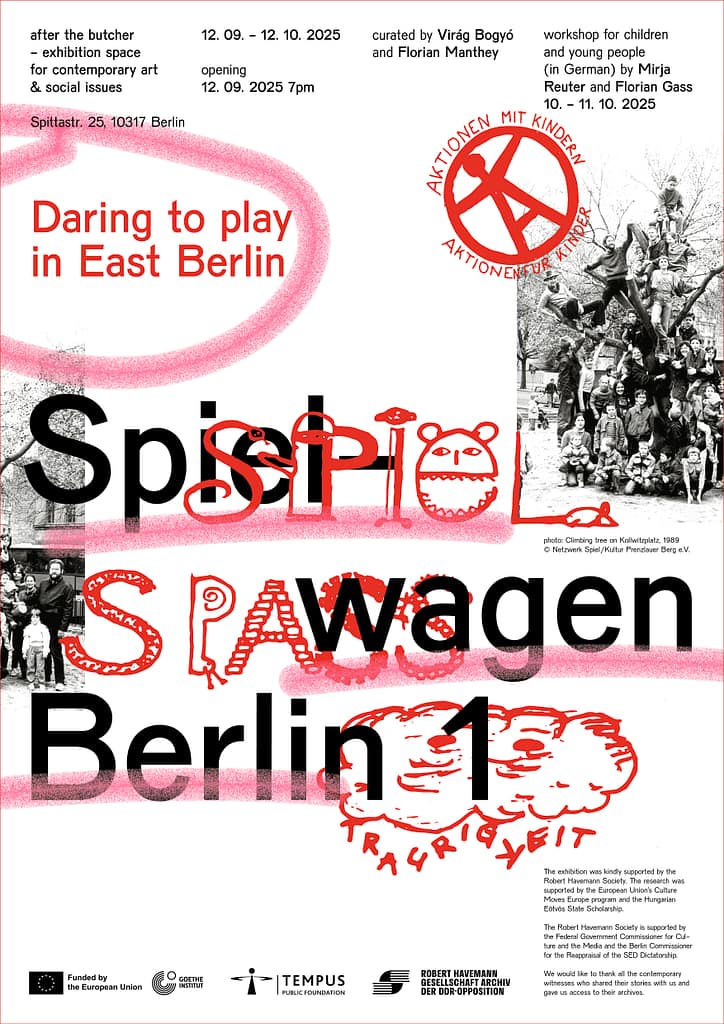
The exhibition Spielwagen Berlin 1 – Daring to play in East-Berlin examines the history and legacy of the East Berlin-based collective ‘Spielwagen Berlin 1’, which emerged in the late GDR period as a pioneering force in experimental play and informal education.
The origins of the collective date back to 1979, when the predecessor group and original ‘Spielwagen Berlin Collective’ was founded. Rather than limiting play to playgrounds, the members of the collective saw the whole city as a possible playground. Their work was centered around a repurposed furniture van – the Spielwagen – used to transport materials and tools for mobile play actions across different East Berlin neighborhoods. In 1985, the original group split into two.
‘Spielwagen Berlin 1’, the focus of this exhibition, continued its activities primarily in Prenzlauer Berg, developing construction-based formats such as the Stadtspiel, in which children collectively built small towns from cardboard and planks and enacted democratic processes in public space. These experimental practices of utopia making took place in the final years of the SED regime, within a still tightly controlled political context. During the period of upheaval and German Reunification, opportunities for institutional reinvention opened up for the group. In early 1990, some members of ‘Spielwagen Berlin 1’ founded ‘Netzwerk Spiel/Kultur Prenzlauer Berg e.V.’ – a still existing embodiment of their political ideals grounded in care, local action, and participatory democracy.
The exhibition examines broader social and political transformations through the lens of Spielwagen Berlin 1’s history; focusing on the context of its foundation, and topics such as “models,” “networks,” “spaces,” and “transformation.” The exhibition aims to show what was possible in a land of limited opportunities through proto-civil society engagement and how skilfully the actors made use of state structures to open up relative freedoms for themselves and their utopia. The exhibition was curated by two researchers of Eastern Bloc playgrounds’ and Spielwagens’ history: cultural worker Virág Bogyó and historian Florian Manthey. A lot of meticulously compiled original material from private archives is shown publicly for the first time. Interviews conducted with contemporary witnesses from ‘Spielwagen Berlin 1’ form part of the exhibition.
The accompanying programme for the exhibition is the workshop ‘Utopian neighbourhood stories for a puppet theatre stage’ for children and young people by artists and art educators Mirja Reuter and Florian Gass.
The exhibition was kindly supported by the Robert Havemann Society. The research was supported by the European Union’s Culture Moves Europe program and the Hungarian Eötvös State Scholarship. Virág Bogyó and Florian Manthey would like to thank all the contemporary witnesses who contributed to the exhibition with their stories and by allowing access to their archives. Special thanks to:
Thea BLANK, Jemima FOXTROT, Tibor HORVÁTH, Annika HÖGNER, Nilson KIRCHNER †, Volker SCHUBERT, Meta SELL, Martyn SORGE, Bernd STUDE, Zoltán SZMOLKA, Sabine TESKE, Elbe TRAKAL, Mike WEIMANN, Sebastian ZILM, Netzwerk Spiel/Kultur Prenzlauer Berg e.V., Robert Havemann Society and Spielkultur-Buch e.V.
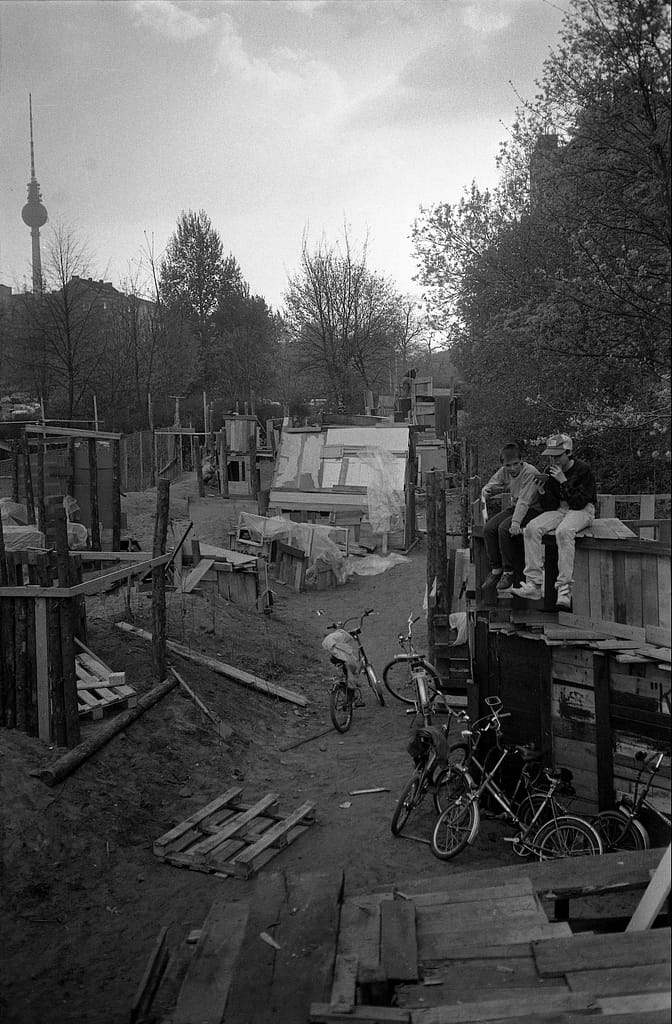
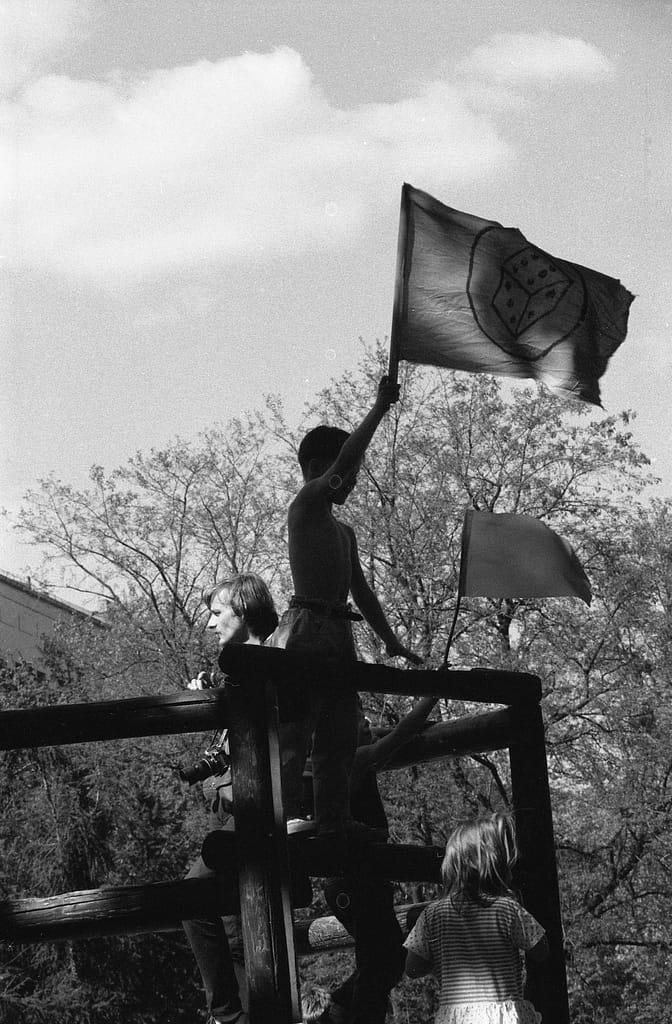
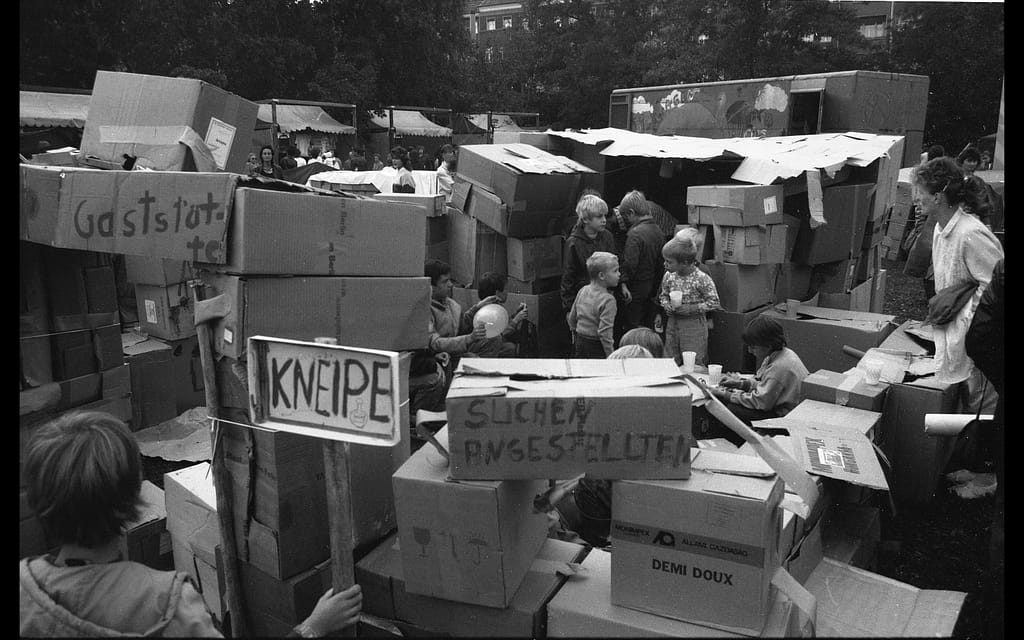
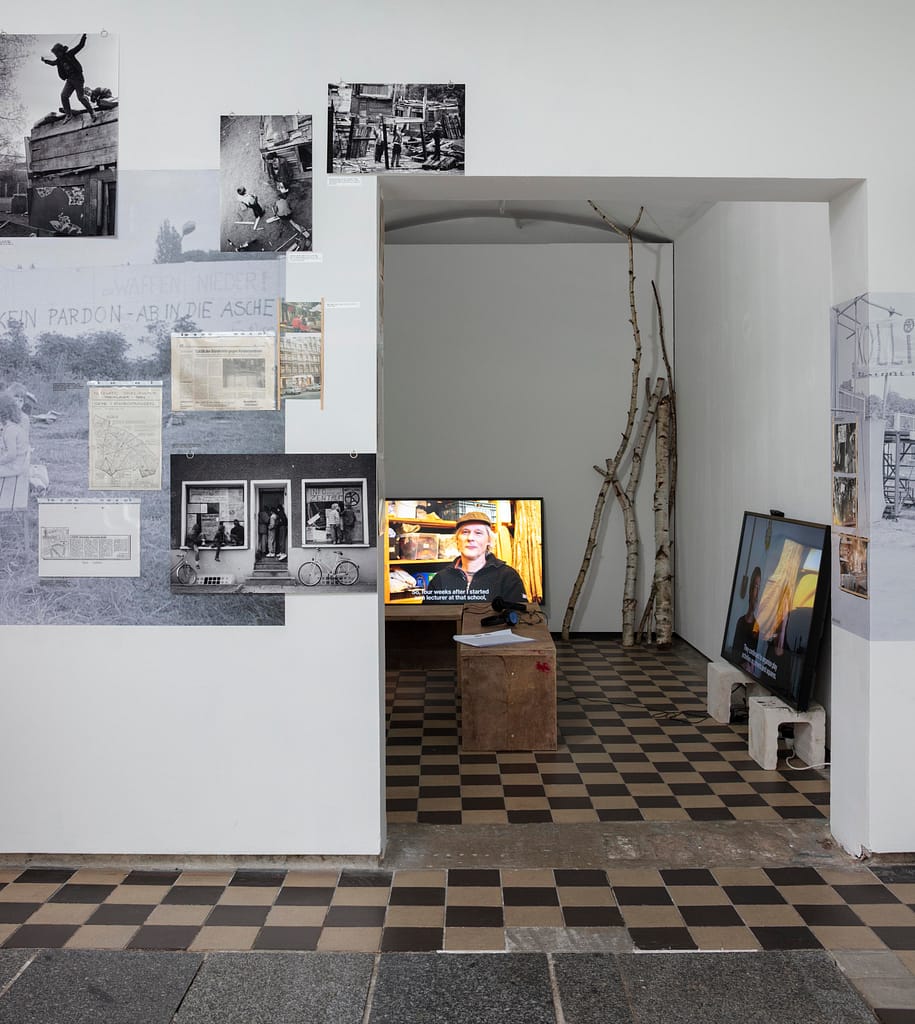
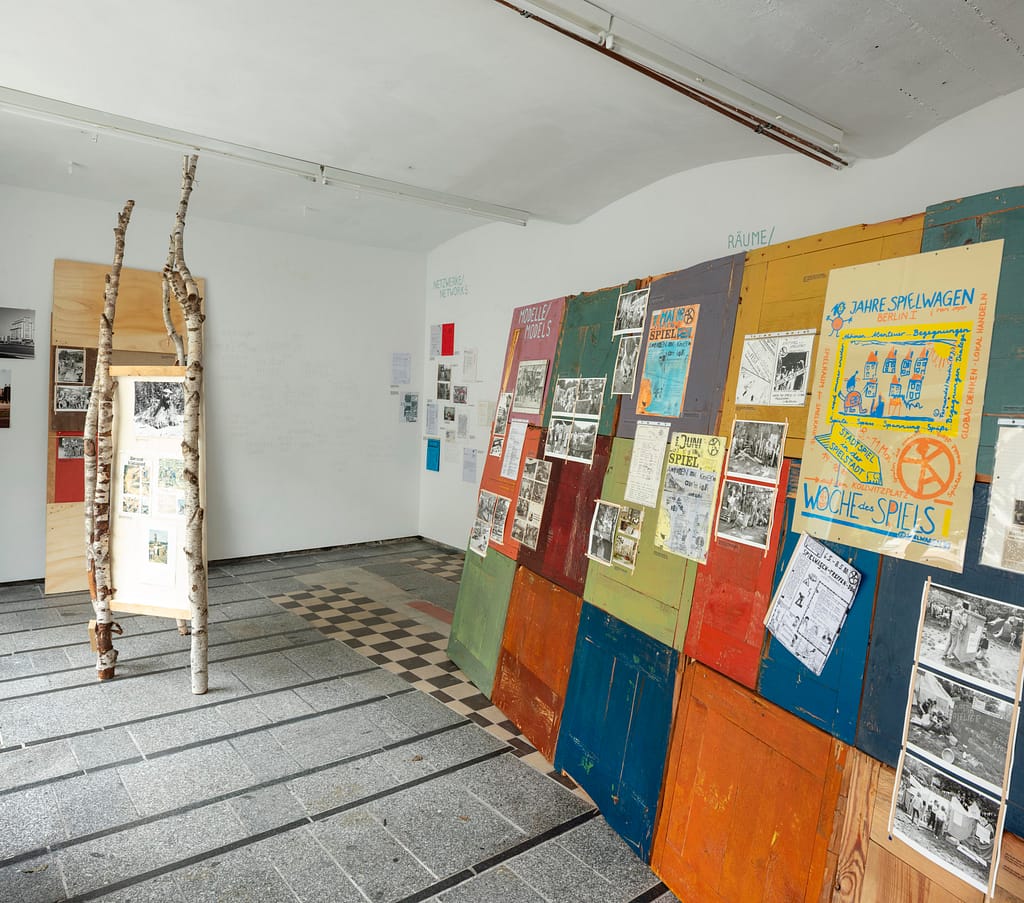
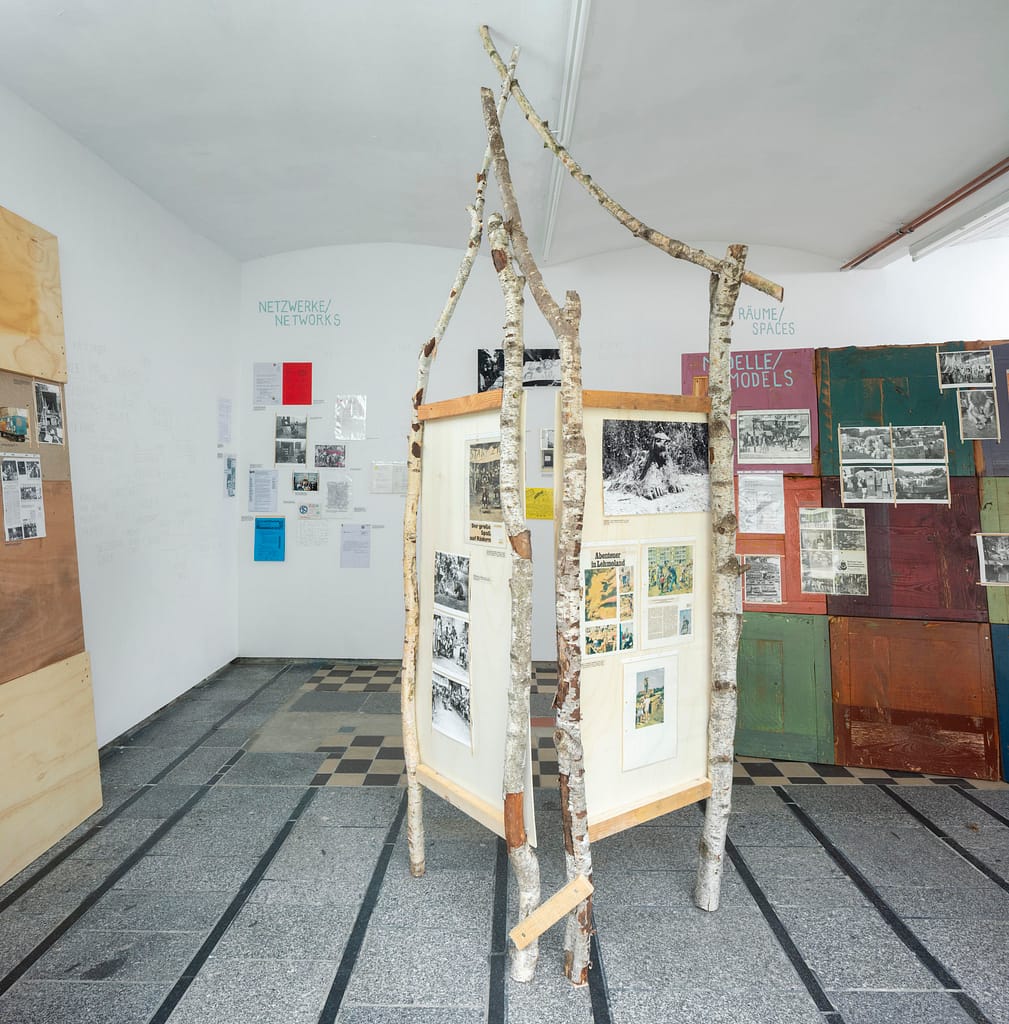
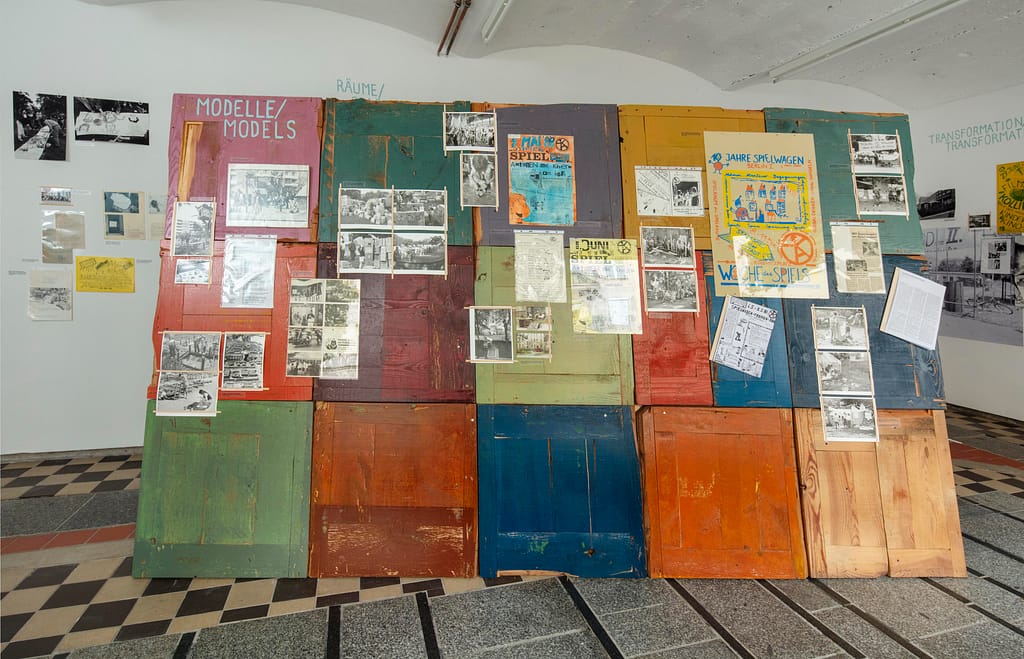
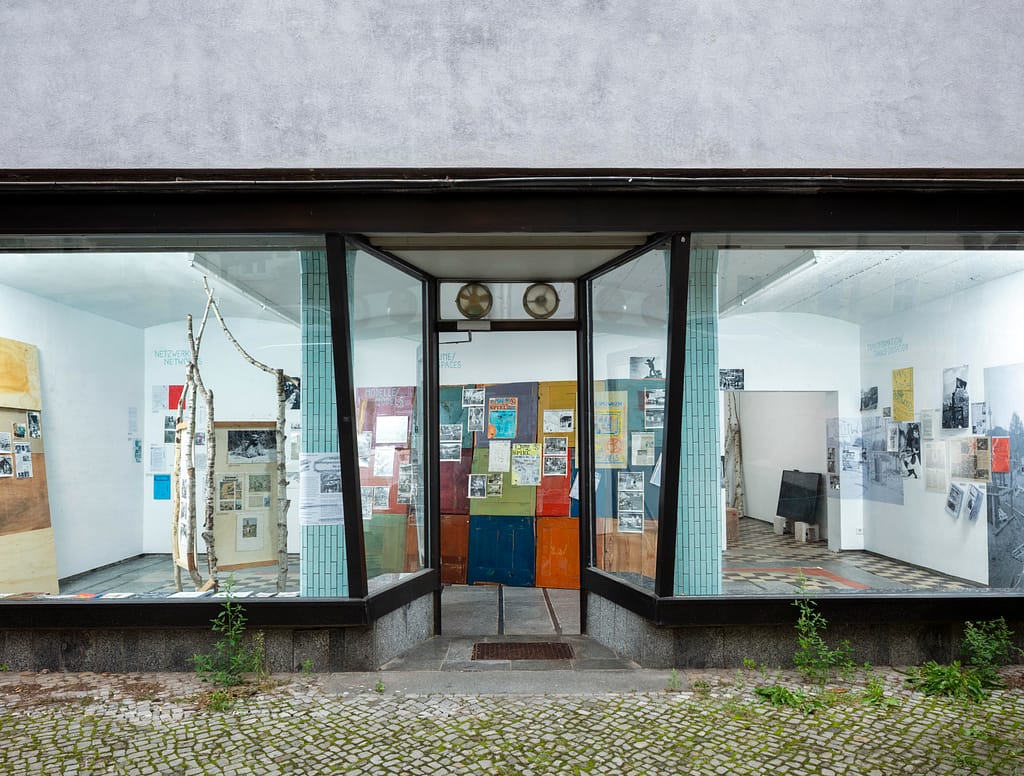
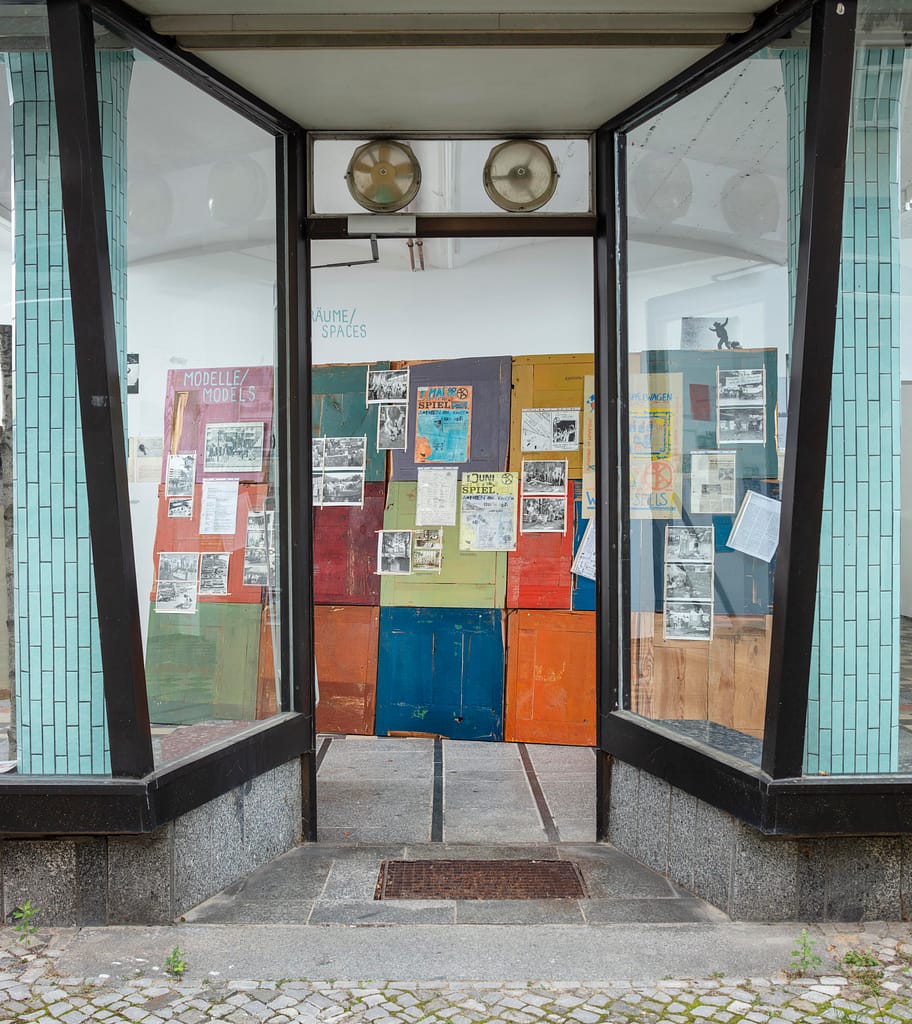
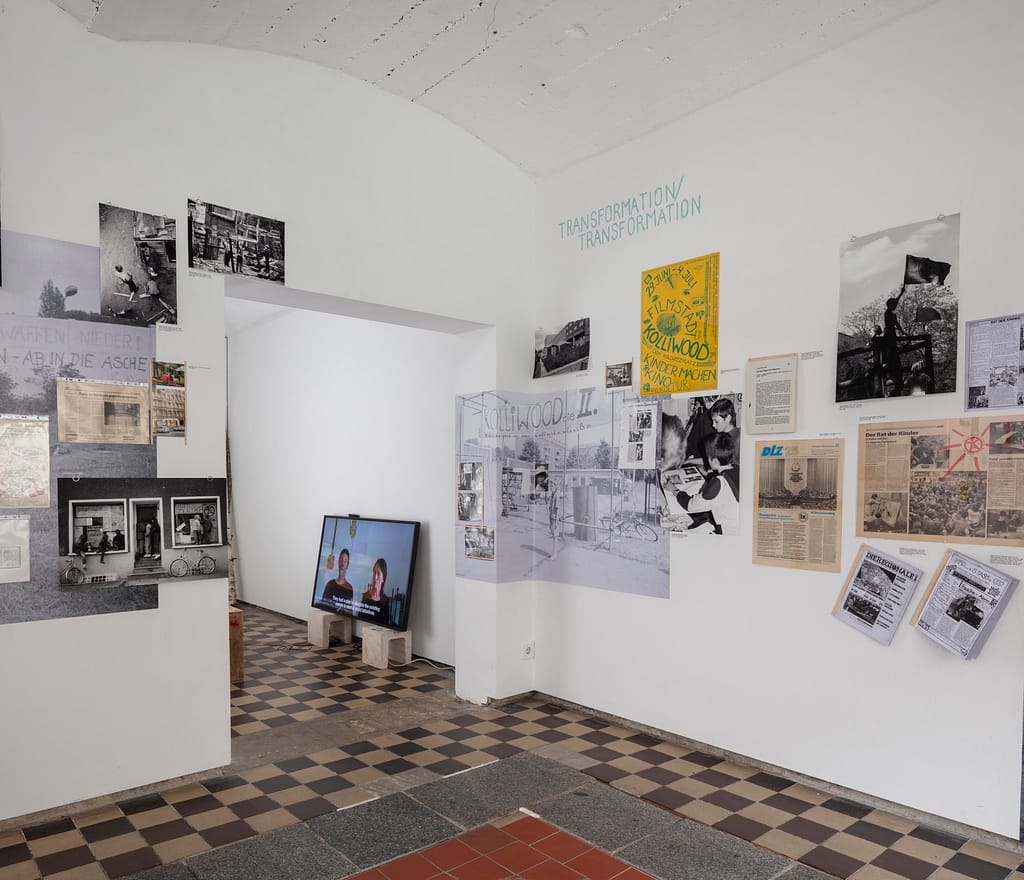
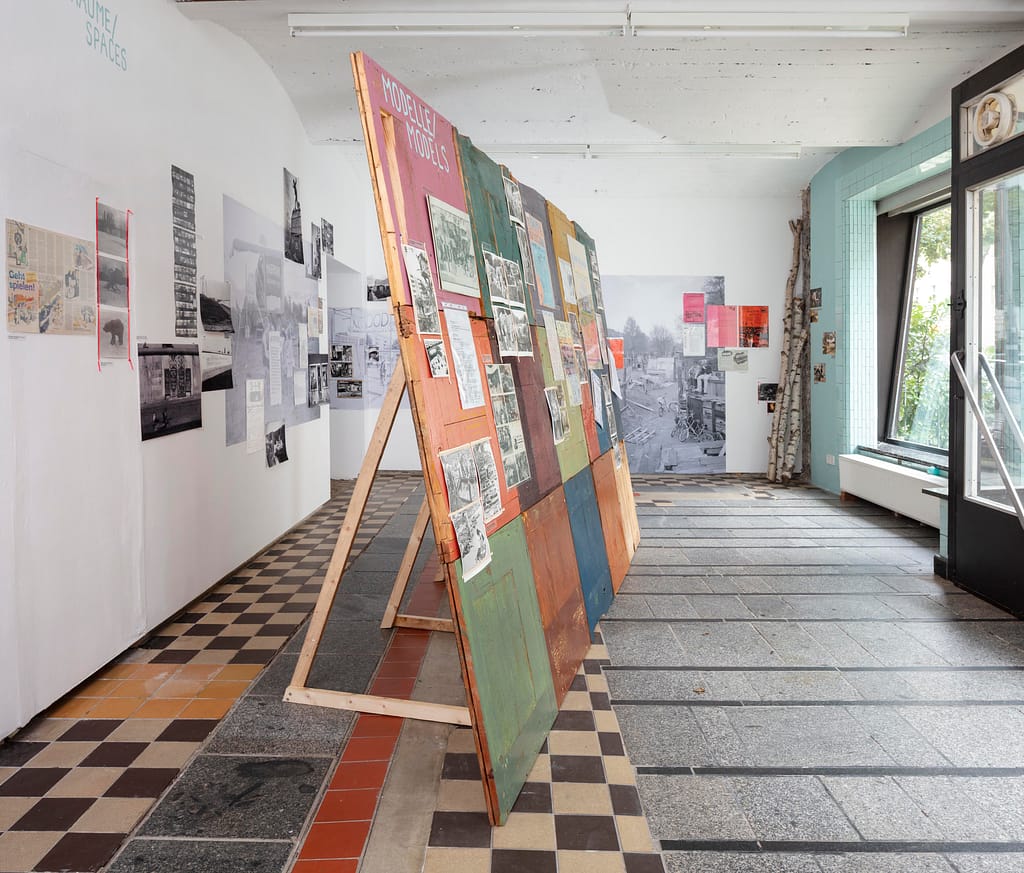
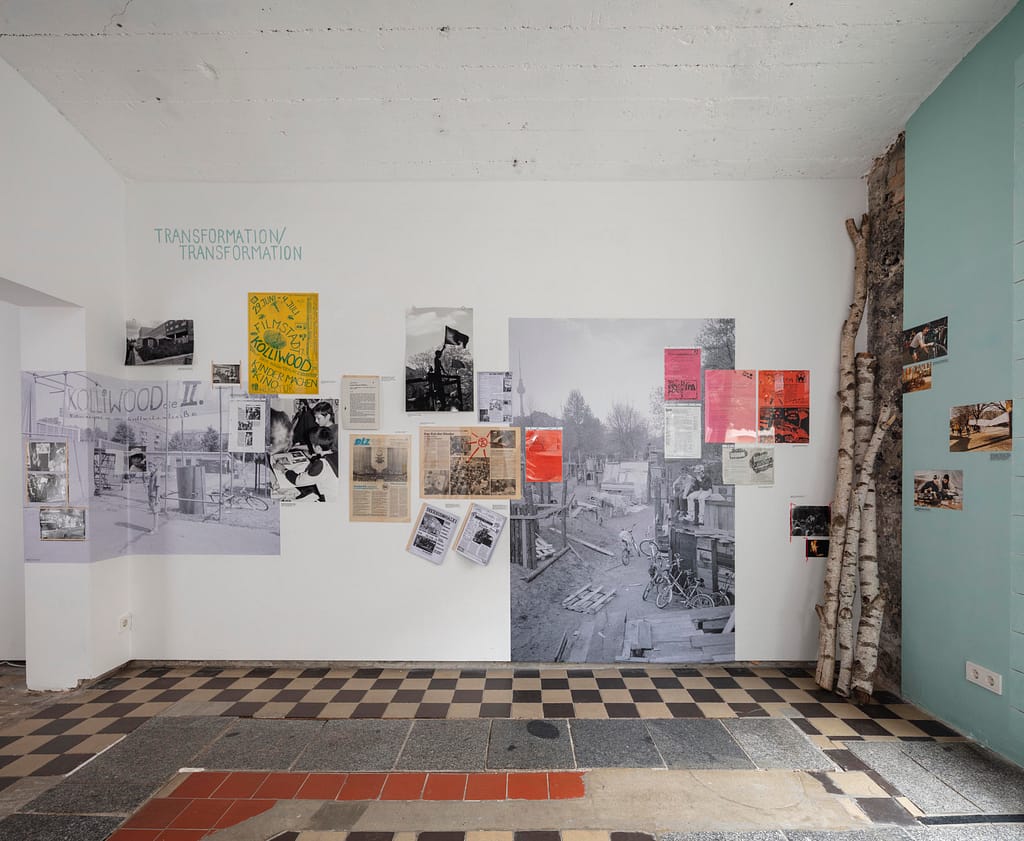
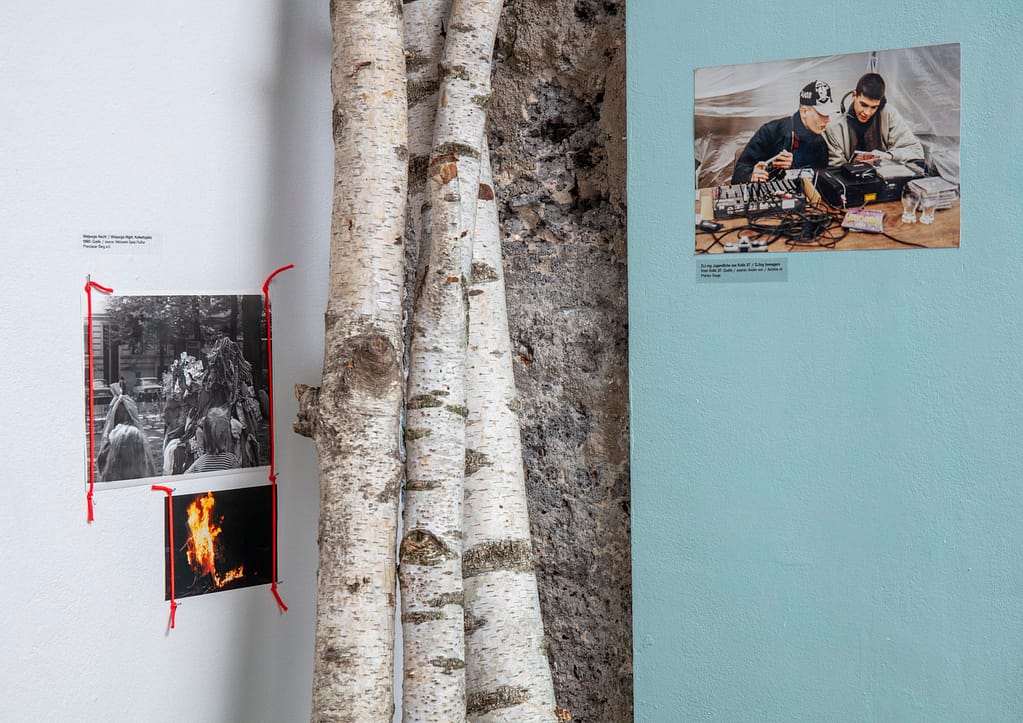
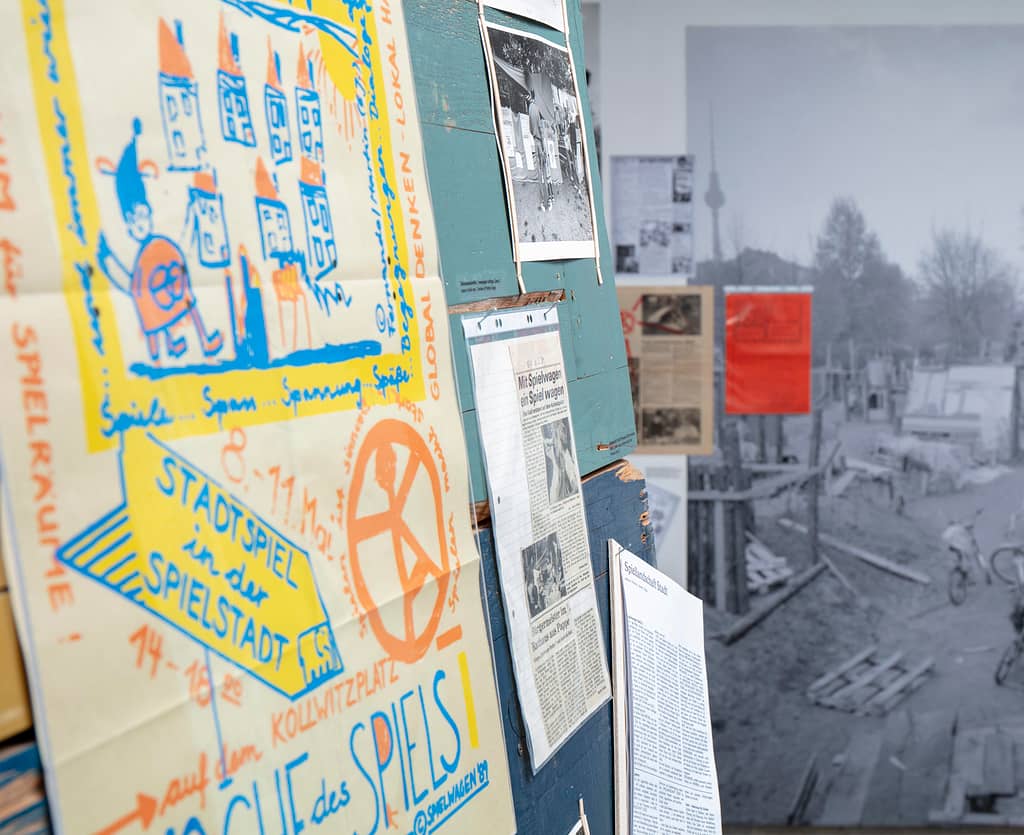
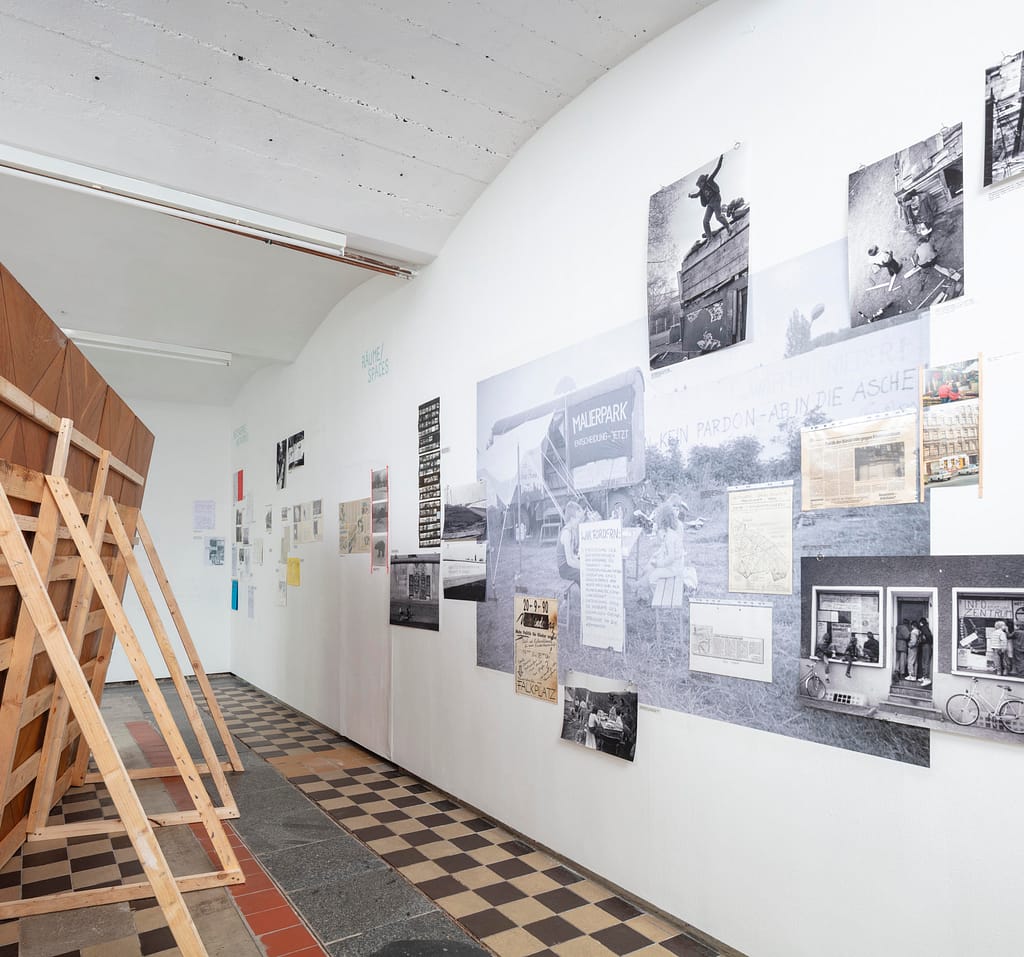
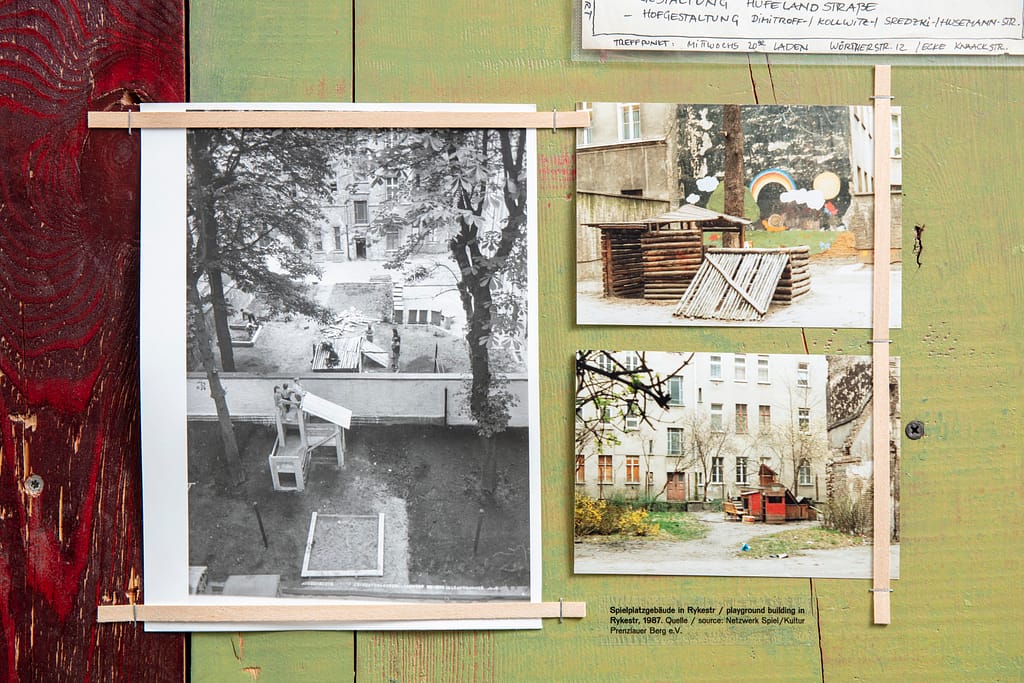
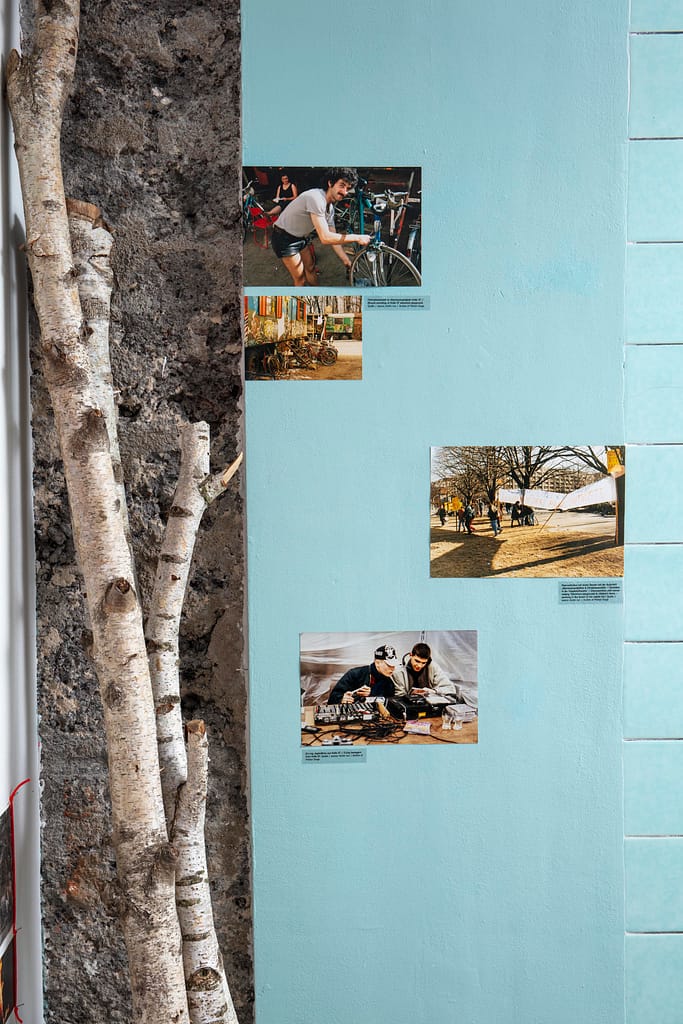
Photo-Documentation: Ludger Paffrath, Berlin